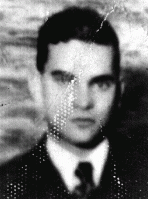You searched for: googleseo开户霸屏包上【TG飞机:@bapingseo】谷歌shopping广告优化【TG电报:@bapingseo】跑分交易程序源碼包【Telegram:@bapingseo】168飞艇官方网站ju11net2备用网址官方网站?e6GBSs/aY1mk7.html
<< Previous | Displaying results 41-50 of 141 for "googleseo开户霸屏包上【TG飞机:@bapingseo】谷歌shopping广告优化【TG电报:@bapingseo】跑分交易程序源碼包【Telegram:@bapingseo】168飞艇官方网站ju11net2备用网址官方网站?e6GBSs/aY1mk7.html" | Next >>
-
Lutz Haase
ID CardLutz was one of two children born to religious Jewish parents living in Wrzesnia when it was still part of Germany. After World War I, Wrzesnia became part of Polish territory. Preferring to remain as German citizens, Lutz's family moved to Nuremberg. There, his father opened a kosher butcher shop. In 1926 the Haases relocated to Berlin and reestablished their butcher shop there. 1933-39: Like many of Berlin's Jews, Lutz was assigned by the Gestapo to a work detail in 1937. He laid electrical cable for…
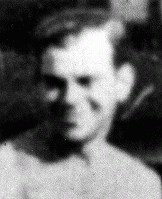
-
Kurt Pauly
ID CardKurt was born to Jewish parents in the city of Aachen, where his mother's family had resided since the 18th century. His father, though trained as a chef, worked as a butcher and also managed several stores for his father-in-law. The Paulys lived over one of those shops in the nearby suburb of Eilendorf. Kurt enjoyed large family gatherings, where he would play with his cousins, Anne and Margot Frank. 1933–39: When the Nazis came to power in 1933, the situation drastically changed for the Paulys.…
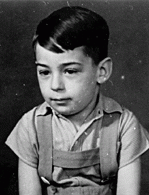
-
Faiga Grynbaum
ID CardFaiga was one of nine children born to religious Jewish parents in Starachowice, a town in east-central Poland. Their small one-story house served as both the family's residence and their tailor shop. Faiga worked in the shop sewing women's clothes; the tailoring was often done in exchange for goods such as firewood or a sack of potatoes. 1933-39: In 1935 Faiga married Haskel Ochervitch. She moved to Kielce, a larger town some 25 miles southwest of Starachowice, where her husband worked selling meat to…
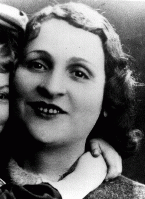
-
Ita Grynbaum
ID CardIta was the second-youngest of nine children born to religious Jewish parents in Starachowice, a town in east-central Poland. Their small one-story house served as both the family's residence and their tailor shop. The tailoring was often done in exchange for goods such as firewood or a sack of potatoes. Ita often helped her mother with chores around the house. 1933-39: Ita's father died at home on a Saturday in June 1939, shortly after returning from synagogue. He had lain down to rest, when suddenly…
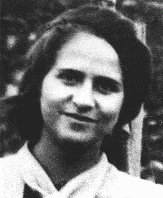
-
Chuna Grynbaum
ID CardChuna was born in a small one-story house that served as both his family's residence and their tailor shop. He was the youngest of nine children born to religious Jewish parents. The family's tailor shop mostly served Starachowice's Catholic Poles. The work was often done in exchange for goods such as firewood or a sack of potatoes. 1933-39: Chuna's father died unexpectedly in June 1939. After returning from synagogue one day, his father lay down to rest. He asked Chuna to close the shade to darken the…
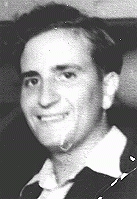
-
Eszter Mendel Braun
ID CardEszter was one of 11 children born to religious Jewish parents in the small town of Hidegkut in eastern Hungary. During World War I her family became refugees and only three of her brothers and sisters survived the war. After the war, she married Jeno Braun, a refugee from the town of Sighet. They settled in the town of Cristuru-Secuiesc in Romania and had six children. 1933-39: Since Eszter could speak many languages, including Hungarian, Yiddish, Romanian, Italian, French, and Hebrew, she felt at home…
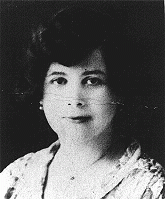
-
Masza Tenenbaum
ID CardThe youngest of three children, Masza was born to Jewish parents living 35 miles east of Warsaw in the small predominantly Jewish town of Kaluszyn. Her father owned a shop where he sold cosmetics and non-prescription medicines. Masza was close friends with a group of Jewish teenagers who went to the same public school and who spent much of their free time and vacations together. 1933-39: Majlich, Sara, and the rest of Masza's group have always liked discussing politics as they strolled down the main…
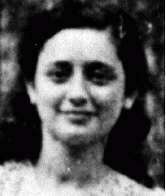
-
Jehuda Gerszonowicz
ID CardThe third of eight children, Jehuda was born in the predominantly Jewish town of Wodzislaw, about 45 miles north of Krakow. Jehuda's father was a mechanic and locksmith, and had trained Jehuda and his brothers in the trade. Jehuda eventually opened his own shop in the nearby town of Miechow. He had eight children--five sons and three daughters--by two marriages. 1933-39: All this summer Jehuda has been glued to the radio, as the number of skirmishes between the German and Polish border guards have…
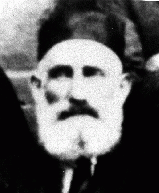
-
Moishe Rafilovich
ID CardMoishe was one of three sons born to Yiddish-speaking Jewish parents in Radom. This industrial city was known for its armaments factories, in which Jews were not allowed to work even though they totaled more than one-fourth of the city's population. When Moishe was young, he left school to apprentice as a women's tailor and eventually became a licensed tailor. He also played soccer for a local team. 1933-39: In 1937 Moishe, by then a master tailor, married another tailor's daughter. The couple had two…
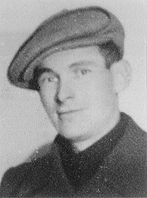
-
Elya Rosenblat
ID CardElya, also known as Eli, was the eldest of three sons born to Yiddish-speaking Jewish parents. When Elya was a child his family moved to the industrial city of Radom, located about 60 miles south of Warsaw. After completing school in Radom, Elya apprenticed to become a women's tailor. Eventually, he became licensed as a master tailor. 1933-39: Elya married in 1936 and had a daughter one year later. He and his wife lived on Zeromskiego Street across from Elya's younger brother, Itzik, who was also a…
